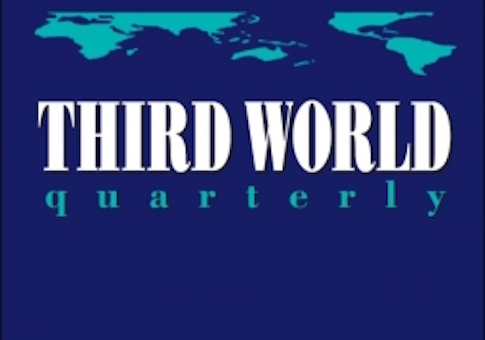Dear Shahid Qadir, Taylor & Francis,Colleagues and Interested Public,
We are deeply disappointed by the unacceptable process around the publication of Bruce Gilley’s Viewpoint essay, The case for colonialism, which was published in Third World Quarterly without any consultation with the Editorial Board. As International Editorial Board Members, we were told in an email on 15 September from Shahid Qadir that this piece was put through the required double-blind peer review process. We asked for these reviews to be sent to the Editorial Board, and they were not.
We have now been informed by our colleagues who reviewed the piece for a Special Issue that they rejected it as unfit to send to additional peer review, and they stated in an email to us:
“We would question the editorial process that has led to the publication of the piece. It was initially offered to guest editors Dr John Narayan and Dr Leon Sealey-Huggins as an article to consider for inclusion in the aforementioned special issue. The guest editors relayed their unease with the article and rejected considering the piece for peer review. It has subsequently come to light that the article was later reviewed as a standard article and rejected by at least one reviewer and then repackaged as an opinion piece.”—email from Dr John Narayan (Birmingham City University)
Dr Leon Sealey-Huggins (Warwick University)
Dr Kehinde Andrews (Birmingham City University)
Dr Eugene Nulman (Birmingham City University)
Dr Goldie Osuri (University of Warwick)
Dr Lucia Pradella (King’s College London)
Professor Vijay Prashad (Trinity College)
Dr Sahar Rad (SOAS, University of London)
Professor Satnam Virdee (University of Glasgow)
Dr Helen Yaffe (London School of Economics)
We have also been informed through correspondence between Prof Ilan Kapoor and our colleague who was the peer-reviewer, after the piece was rejected by the Special Issue editors, that her review also rejected the Viewpoint. Thus, the fact is established that this did not pass the peer-review when we have documentation that it was rejected by three peer reviewers.
As the Viewpoint did not pass the double-blind peer review as claimed by the editor in the statement he issued in the name of the journal, it must be retracted and a new statement issued.
The Viewpoint fails criterion #1 of the Committee on Publication Ethics COPE guidelines that state: “Journal editors should consider retracting a publication if: they have clear evidence that the findings are unreliable, either as a result of misconduct (e.g. data fabrication) or honest error (e.g. miscalculation or experimental error).”
https://publicationethics.org/files/u661/Retractions_COPE_gline_final_3_Sept_09__2_.pdf
These COPE guidelines are Taylor & Francis’s reference documents for ethics of retracting a publication the editorial board was told in an email on 18 September by Shahid Qadir.
Thus, Bruce Gilley’s Viewpoint essay, “The case for colonialism” must be retracted, as it fails to provide reliable findings, as demonstrated by its failure in the double-blind peer review process.
We all subscribe to the principle of freedom of speech and the value of provocation in order to generate critical debate. However, this cannot be done by means of a piece that fails to meet academic standards of rigour and balance by ignoring all manner of violence, exploitation and harm perpetrated in the name of colonialism (and imperialism) and that causes offence and hurt and thereby clearly violates that very principle of free speech.
The editor of TWQ has issued a public statement without any consultation with the editorial board that is not truthful about the process of this peer-review, and thus, as we fully disagree with both the academic content of the Viewpoint and the response issued in the name of the journal, we are forced to resign immediately from the editorial board of Third World Quarterly.
As scholars, we remain ever-committed to the ideals that this journal has stood for over the past 40 years, and we would consider serving on an editorial board under different editorial arrangements.
Sincerely,
Ilan Kapoor (York University, Canada)
Stefano Ponte (Copenhagen Business School, Denmark + Duke University, US)
Lisa Ann Richey (Roskilde University, Denmark + Duke University, US)
Mahmood Mamdani (Makerere Institute of Social Research, Uganda + Columbia University, US)
Asef Bayat (University of Illinois, Urbana-Champaign, US)
Naila Kabeer (London School of Economics and Political Science, UK)
Katie Willis (Royal Holloway University of London, UK)
David Simon (Chalmers Univ. of Technology, Sweden + Royal Holloway Univ. of London, UK)
Walden Bello (State University of New York at Binghamton, US)
Giles Mohan (The Open University, UK)
Ayesha Jalal (Tufts University, US)
Uma Kothari (University of Manchester, UK)
Vijay Prashad (Trinity College, US)
Klaus Dodds (Royal Holloway University of London, UK)
Richard Falk (Princeton University, US)





